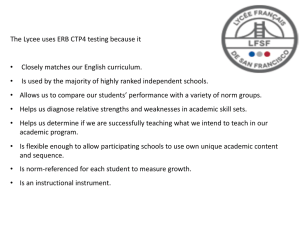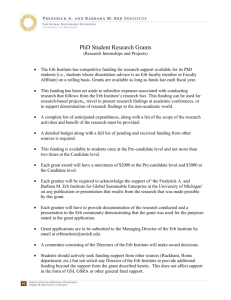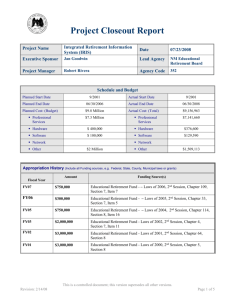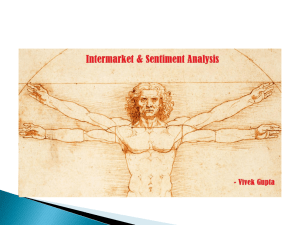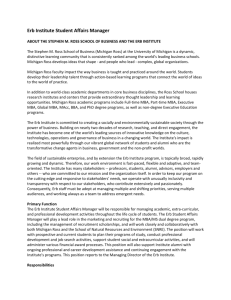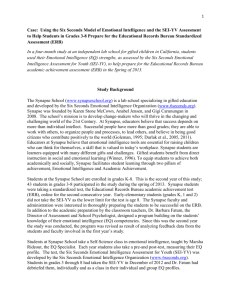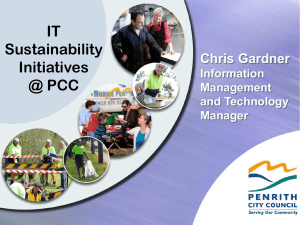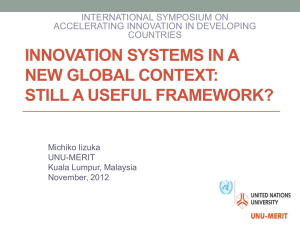9RTIMP_use_of_ERB_as_innovation
advertisement
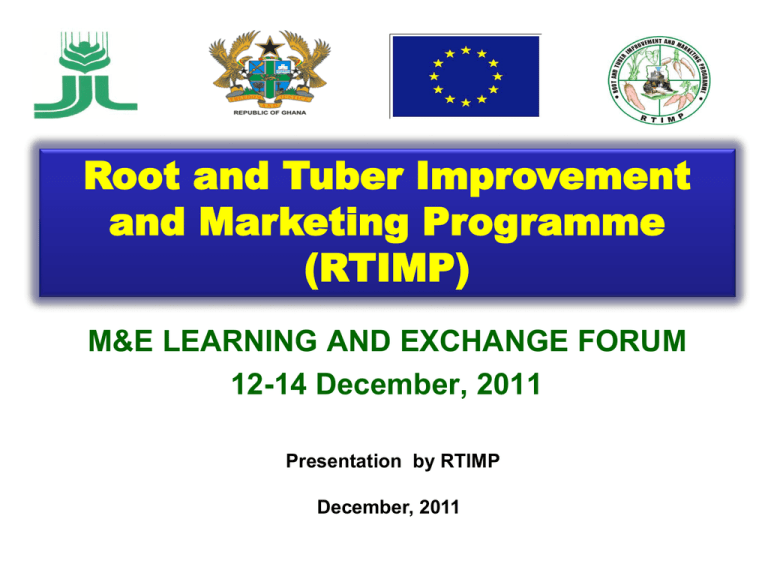
Root and Tuber Improvement and Marketing Programme (RTIMP) M&E LEARNING AND EXCHANGE FORUM 12-14 December, 2011 Presentation by RTIMP December, 2011 Brief Programmme Background Goal: To enhance income and food security Main purpose: To build a competitive market-based R & T Commodity Chains -Component A: Commodity Chain Linkages -Component B: Root and Tuber Crop Production -Component C: Root and Tuber processing Business and Marketing Programme Management, Monitoring and Evaluation Component D: Programme M&E system Completed the design of M&E System. Core Elements of the System ; • i.) M&E Log Frame, • ii.) M&E Manual including M&E Matrix and • iii.) AWPBs Organisation of the system / Levels of measurement: • • • • • Regular Monitoring (Activities and Outputs) Evaluation (Outcomes and Impact ), Information Management Reporting (on crosscutting issues) Information processing and sharing eg processing of experiences and success stories Main Results Being Captured / Key Outcomes -Component A: Commodity Chain Linkages Performance of value chains -Component B: Root and Tuber Crop Production Productivity, Adoption Decrease in pest and disease incidence -Component C: Root and Tuber processing Business and Marketing Adoption, Sales, Performance of Businesses The Initiative—Use of ERB • Emphasises record keeping by the beneficiaries themselves • Used to capture financial transactions by entrepreneurs /actors in the commodity chain • Used to analyse financial performance --profitability --sustainability • Training support from BACs of NBSSI Peeling Bay at a GPC Motivation for the use of ERB • Supports business decision making • Determines GPCs sustainability • Source of M&E data. of the Positive Experiences and Challenges Positive Experience • Data in ERB now the base / source data for financial analysis • Making sound business decisions • Identification of high cost centres Challenges • Low educational background of most actors • Taking much time for actors to appreciate / embrace the concept Key Lessons and Way Forward Key Lessons • Financial performance is crucial for sustainability of the initiatives of the GPCs • Provides opportunities to develop framework for assessing areas for improvements Way Forward • Use of ERB data to assess sustainability of programme outcomes • Extend ERB to the other actors of the value chain (eg farmers) • Combine financial data with qualitative data (eg from POA) for outcomes of the Programme Conclusion • Financial performance is key for outcomes sustaining • Combination of qualitative and quantitative data ensures effective assessment of outcomes. • RTIMP now has mechanism in measuring / assessing outcomes • From end outcomes of 2011, Greater place for emphasis on
